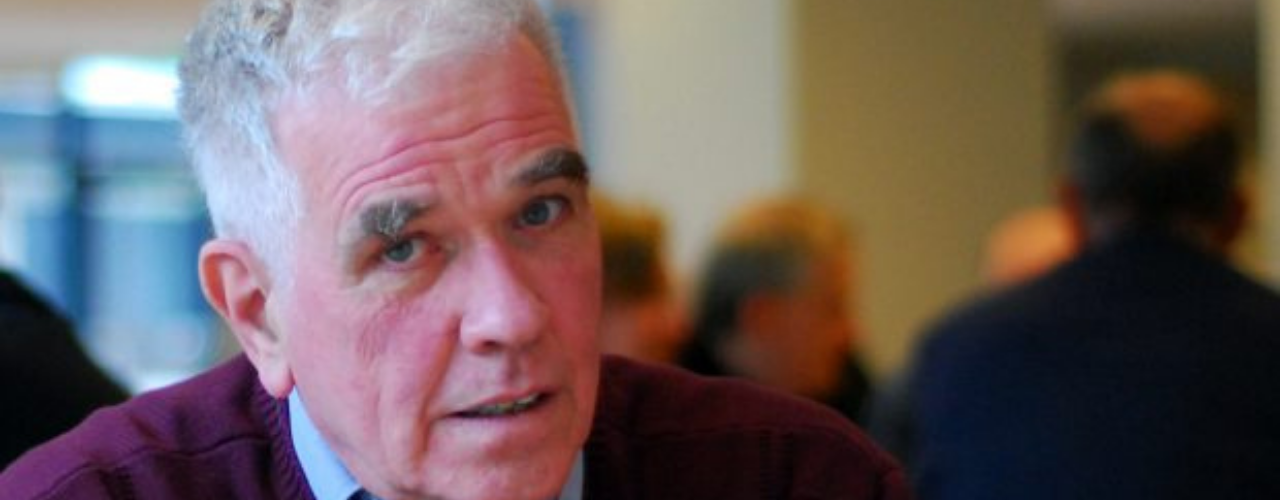
To address the problem of homelessness, we obviously need to understand the causes and nature of it. Unfortunately, there are some myths about homelessness, even amongst decision-makers, which prevents the problem from being resolved, says Peter McVerry SJ.
Most homeless people have an addiction problem or a serious mental health problem
This is NOT true, except for a small sub-group of homeless people who get all the media attention because they are the most visible of all homeless people. Most media features on homelessness will show a person in a sleeping bag in a doorway. Hence, they shape the perception of homelessness for many people.
However, the majority of people who are homeless today become homeless as a result of eviction from the private rented sector, either because they could no longer afford the increasing rents or the landlord says they are selling the house. Very few of them have an addiction or mental health problem. Some were working prior to eviction, others were very active in their community. Many are single parents, a group that is most at risk of poverty. Today, the age group with the largest number of homeless people is the 0 – 4 age group!
This myth is important because it diverts attention from the structural problems which cause homelessness – lack of social housing, weak tenant protections, low wage and precarious employment – to a ‘moral’ problem, focusing on the personal defects of homeless people.
The cause of most homelessness today is poverty, an inability to afford their own accommodation.
Homelessness is an unfortunate, but inevitable, consequence of economic growth.
It is the price our society pays for progress. This again is NOT true. Finland has succeeded in eliminating homelessness. Homelessness is a consequence of government housing policy failure over the past 20 or so years. A conservative ideology, which sees a smaller role for the state by outsourcing public services to the private sector, has transferred responsibility for the provision of housing to the private property market. In 1975, this country built 8,500 council houses; in 1985, this country built 6,900 council houses; and in 2015, this country built 75 council houses. The private rented sector was expected to compensate by providing secure and affordable housing for low income households. But it is neither secure nor affordable for many. Most leases are for twelve months or less, and are easily terminated. And as demand has increased, so have rents. Furthermore, almost half of landlords are demanding a “top-up” from the tenants, in addition to the government subsidy, pushing many tenants into poverty. And some people find it almost impossible to access private rented accommodation, such as travellers, people with disabilities, single men and large families.
The lack of council housing and the failure to regulate the private rented sector are major causes of homelessness.
The government is doing all it can to address homelessness by opening more hostels and family hubs.
Hostels and family hubs do not solve homelessness; they address rough sleeping. The solution to homelessness is to give people a home, where they have security of tenure in which to bring up their children and integrate into the local community. Hostels and family hubs provide off-the-street temporary accommodation; they only manage homelessness, they do not solve it. But they give the impression that government is addressing homelessness, which is politically important for governments.
The cost of providing council housing for all those in need is prohibitive.
While providing council housing is certainly expensive, we need to consider it just as essential for society as education, health or childcare. The lack of council housing is also extremely expensive. Taxpayers are paying €2 million per day to private landlords to provide housing for low income households, which over the 5-year housing plan, Rebuilding Ireland, will transfer €3.5 billion to private landlords without a single extra house being built.
Affordable, secure housing for everyone is considered a basic human right in 85 countries but not in Ireland! A person, even a family with children, who are homeless have no legal right to shelter, never mind a home. If we were to insert a “right to housing” in the constitution, which is supported by a vast majority of the population, it would put an onus on governments to give housing a priority which it does not presently have.
Author: Peter McVerry SJ
(This article first appeared in Reality magazine in 2020.)

